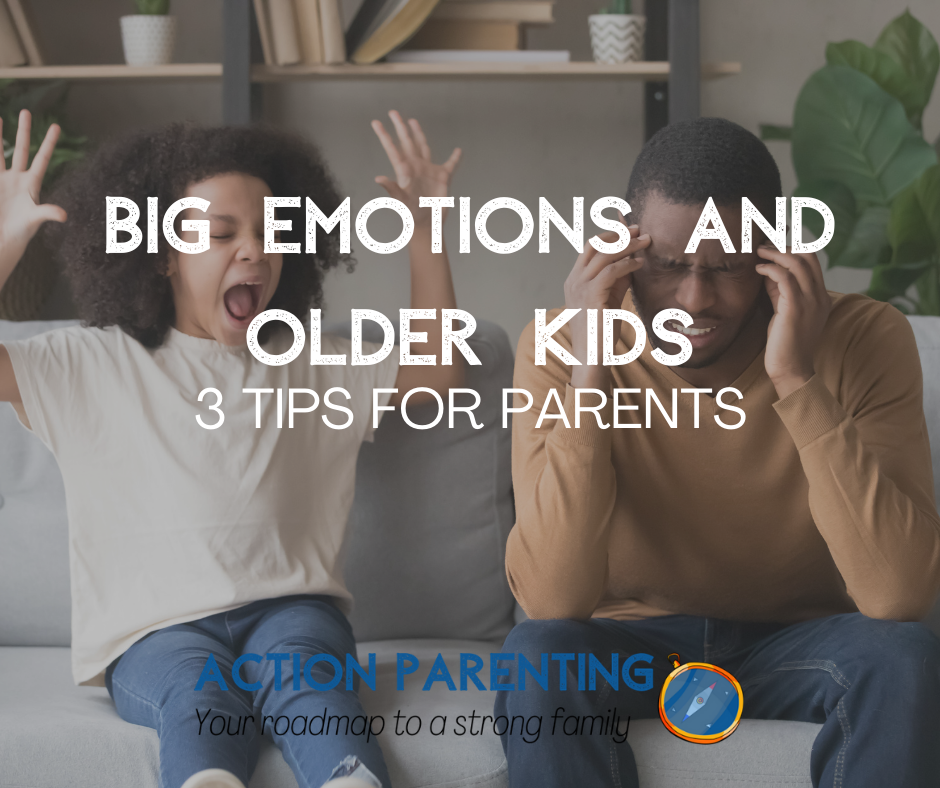What a week, month, and year of big emotions for all of us! Last week we talked about supporting big emotions in young children and this week we are sharing some tips and tricks for supporting big emotions in older kids and teens.
No matter the age of our kids, their moods and emotions will rise and fall. As our children grow, we want to provide them with more tools to develop their knowledge of how to handle big emotions both now and later in life. Below are three tips on how to help older kids learn to ride the waves of emotions.

1 – Validate their emotions:
Our older can have so many strong reactions to different situations in life, both old and new. Often what they are looking for more than anything, is acknowledgement that however they are feeling is valid and ok. It’s also important to give them the space to express those feelings. This doesn’t mean you may agree with how they are feeling or handling a situation, but simply that you hear what they are saying and acknowledging that it’s ok to feel this way. Validating big emotions is a great way to begin to diffuse them.
2 – Help them to figure out their triggers:
As an adult I know what can easily trigger me (feeling like I have no choices left or control). Our kids can be triggered by many different things. During the tween and teen years there are so many things that can trigger kids that they might not even be aware of from the pressures at school, to friends, to figuring what is next in life.
Help your kids figure out what might be triggering them by asking questions that they can’t just say yes or no too. Rather than asking are you angry, ask what makes you angry? Where do you feel the anger in your body? How do you know when you are getting angry?Teaching kids to understand what can trigger them is an important step in helping them realize when they need to start regulating themselves.
3 – Teach them how to self-regulate:
The most powerful thing we can do to help kids learn how to self-regulate is to model it in our own behavior first, then begin to have conversations around identifying what can help calm our kids down. Help your child begin to practice some activities that may help them regulate their emotions before they are caught in the midst of big emotions.
Simple things can help our kids from deep breathing, to having a snack, to lighting a candle or taking a hot shower. All of these things help to calm our nervous systems down. Ask your kids what already helps calm them down (they probably have some great ideas) and use that as a jumping off point.
These are just a few tips to get you started in addressing big emotions in your older kids. If you want more, we are launching a brand new online parenting class on this topic called “Big Emotions and What Parents Can Do.” In this class you will get more knowledge about what is happening in the brain as well as more in depth teaching around validation, identifying triggers, and how to teach kids to regulate. The course launches November 16. Be sure to join our Facebook Group for more information.

